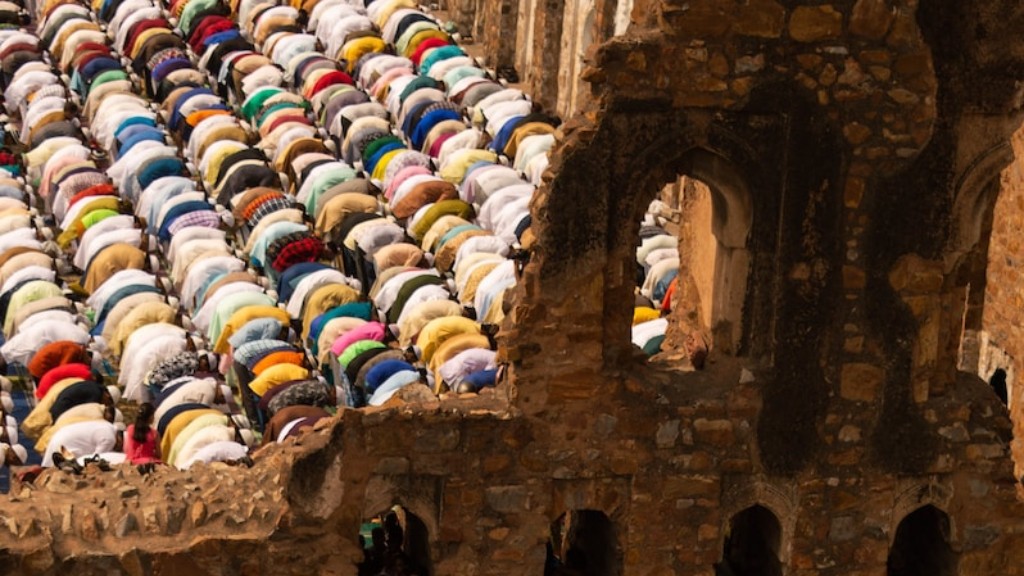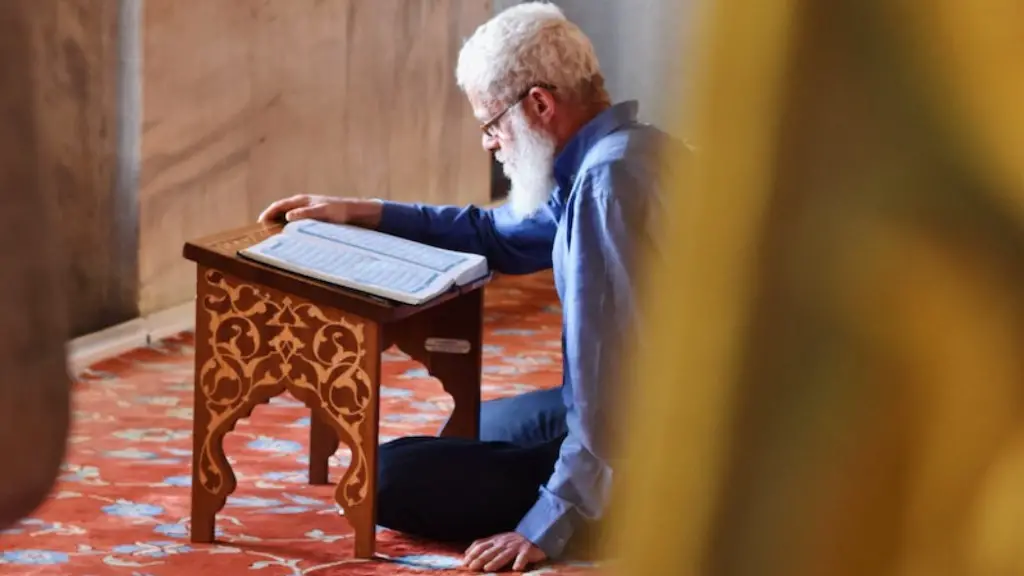The culture of Islam is defined by the Quran, which is the Islamic holy book. The Quran contains the principles of Islam, which are followed by Muslims. The Quran is divided into 114 chapters, which are called surahs. Muslims believe that the Quran was revealed by God to the Prophet Muhammad. The Quran is the source of Islamic law, which is called sharia. Sharia is based on the Quran and the Hadith, which is a collection of the sayings of the Prophet Muhammad. Muslims follow the sharia in their daily lives. The sharia regulates all aspects of Muslim life, including prayer, fasting, charity, and business. It also contains the rules for family life, marriage, divorce, and inheritance.
The culture of Islam is a way of life that is based on the Islamic faith. The faith itself is based on the belief in one god, Allah, and the teachings of the Prophet Muhammad. Muslims strive to live in accordance with the five pillars of Islam, which are faith, prayer, fasting, charity, and pilgrimage. In addition to these basic concepts, the culture of Islam also encompasses the arts, literature, and sciences. Muslims believe that all these areas of human endeavor should be used to glorify Allah and promote the well-being of humanity.
What kind of culture is Islam?
The term “Islamic culture” is used to describe the cultural traditions of Muslim societies around the world. These societies are united by their membership in the umma, the worldwide community of Muslims. Islamic culture is characterized by a number of shared features, including a belief in God, a focus on the role of the Prophet Muhammad, and a commitment to social justice. Islamic culture also has a rich tradition of art, literature, and music.
Islam is a religion with a rich tradition and culture. Here are some important vocabulary words to know when studying Islam:
Five Pillars of Islam: The five pillars of Islam are belief, worship, fasting, almsgiving, and pilgrimage.
Ramadan: Ramadan is the ninth month of the Muslim calendar. It is a period of time when Muslims abstain from food and drink between the time of sunrise and sunset.
Where is Islamic culture
The Islamic world is a large and diverse region, with significant populations in many different regions of the world. The main regions of the world with a predominantly Islamic population are located in Central Asia, the entire Middle East and Western Asia (except Armenia and Israel), all of North Africa, and many countries in West Africa, South Asia, and Maritime Southeast Asia.
There is significant variation in the Muslim populations of different regions of the world. In some areas, such as the Middle East and North Africa, Islam is the dominant religion, while in others, such as South Asia and Southeast Asia, Muslims make up a sizable minority of the population.
The Islamic world is also home to a wide variety of cultures and traditions. In some countries, such as Saudi Arabia, Islam is the official religion and dominates all aspects of public life, while in others, such as Indonesia, Islam is one of several officially recognized religions and has a more limited role in public life.
Despite the diversity of the Islamic world, there are certain beliefs and practices that are shared by Muslims across the globe. The most important of these is the belief in God (Allah) and the practice of the five pillars of Islam (the profession of faith, prayer, giving of alms,
Muslim culture is one of the most peaceful and excellent cultures in the world. It is based on the welfare and well-wishing of the people. By its expression, purity, modesty, and sincerity prevail in the atmosphere.
Is Islam a culture or religion?
Islam is a major world religion that was founded by the Prophet Muhammad in Arabia in the 7th century CE. Islam teaches that there is only one God, and that Muhammad is the final prophet of God. Muslims believe that the Quran is the word of God, and that it should be followed in all aspects of life. Islam also teaches that all people are equal in the eyes of God, and that everyone should strive to live a life of peace, compassion, and justice.
The Five Pillars of Islam are the core beliefs and practices of the Islamic faith. The Profession of Faith, or shahada, is the belief that “There is no god but God, and Muhammad is the Messenger of God.” Prayer, or salat, is an important part of Islamic worship. Alms, or zakat, is the practice of giving to the needy. Fasting, or sawm, is a practice observed during the holy month of Ramadan. Pilgrimage, or hajj, is a journey to the holy city of Mecca.
Is culture important in Islam?
It is not surprising that many Muslims would want their cultures to play a strong role in their lives. After all, culture is often a big part of what makes us who we are. It can provide us with a sense of identity and belonging, and can shape our values and beliefs.
For Muslims, culture can be a hugely important part of their lives. It can dictate how they dress, what they eat, how they behave, and what they believe. It can also provide them with a sense of identity and belonging.
However, it is important to remember that not all Muslims are the same. There is no one Muslim culture, but many different ones. And not all Muslims will want their culture to play a central role in their lives. Some may be more interested in their religion, while others may just want to be like everyone else. Ultimately, it is up to each individual Muslim to decide how important their culture is to them.
Culture is the accumulation of shared knowledge that allows humans to survive and thrive in their environments. It is passed down from generation to generation, and helps us to understand our place in the world. culture shapes our values, beliefs, and Behaviors. It is the filter through which we see the world, and it influences the way we interact with others.
What is Islamic culture food
Muslims are allowed to eat fruit, vegetables and eggs. Any meat and meat products they consume must be from a halal slaughtered animal. Milk and dairy foods are halal, cheese may be halal depending on ingredients.
The Five Pillars of Islam are the foundation of Muslim life. They are the testimony of faith, prayer, giving zakat (support of the needy), fasting during the month of Ramadan, and the pilgrimage to Mecca.
Muslims believe that the Five Pillars were taught by God to the Prophet Muhammad. They also hold that these obligations are a means of strengthening one’s faith and developing a closer relationship with God.
What are the 5 cultural values?
Cultural value was originally assessed by dividing it into five components: aesthetic, social, symbolic, spiritual and educational value. However, recent research has shown that these five components are not always reliable indicators of cultural value. For example, social and spiritual value may be more important in some cultures than in others. Furthermore, the five components are often interrelated, making it difficult to assess each one independently.
The Arabic language is one of the most important symbols of Arab national identity. It is the mother tongue of over 250 million people across the Middle East and North Africa, and is the sacrosanct language of the scripture of Islam. The Arabic language is a powerful tool for communication and understanding between Arabs and the outside world.
What culture follows Islam
The Islamic faith has a long and rich history, one that has been greatly influenced by the cultures around it. With the rapid expansion of the Islamic empires, Muslim culture has assimilated much from the Persian, Egyptian, North Caucasian, Turkic, Mongol, Indian, Bangladeshi, Pakistani, Malay, Somali, Berber, Indonesian, and Moro cultures. This process of assimilation has led to a rich and diverse culture within Islam, one that is steeped in tradition and yet ever-changing.
Religion is considered to be a part of culture and it is one of the many ways of expressing and experiencing spirituality. It is inward, personal, subjective, transcendental, and unsystematic. In other words, cultural values are seen as a foundation to religiosity.
What is culture vs religion?
Culture and religion are two separate but interrelated concepts. Culture may be thought of as a causal agent that affects the evolutionary process by uniquely human means. Religion, on the other hand, is considered a process of revelation and contains the concept of the “faithful” who receive the message of revelation.
Culture affects evolution by shaping the environment in which humans live and by shaping the human psyche. Religion affects evolution by providing amoral framework within which humans can operate.
These basic beliefs shape the Islamic way of life:
1. Belief in the Oneness of God: Muslims believe that there is only one God, who is the creator and sustainer of the universe. He is perfect and has no equals.
2. Belief in the Angels of God: Muslims believe that God has created a number of angels, who carry out His will and act as His messengers.
3. Belief in the Revelations (Books) of God: Muslims believe that God has revealed Himself to mankind through a number of prophets, who have brought His message to humanity. These prophets include Abraham, Moses, Jesus and Muhammad.
4. Belief in the Prophets of God: Muslims believe that all of the prophets were chosen by God and were given the task of conveying His message to humanity. They are all considered to be equal in terms of their status and righteousness.
5. Belief in the Day of Judgment: Muslims believe that on the Day of Judgment, all people will be judged according to their deeds and will either be sent to Paradise or Hell.
6. Belief in Premeasurement (Qadar): Muslims believe that God has preordained everything that will happen in the universe. He
Warp Up
The culture of Islam is one that is based on the teachings of the Quran and the Prophet Muhammad. It is a way of life that is governed by Islamic law and encourages Muslims to lead lives that are moral and ethical. The culture of Islam also promotes the importance of education, family, and community.
Muslims have a very strong sense of community and family. They also have a deep sense of spirituality and faith. Islam is a way of life for them, and they take their religion very seriously. Muslims are very proud of their culture and heritage.



